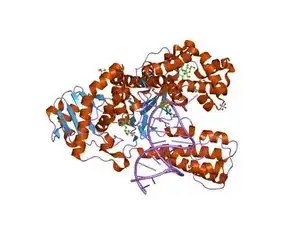Background and Identification
Polymerase Chain Reaction (PCR) is the practice of rapidly producing millions to billions of a particular strand of DNA, in order to have quantities sufficient for study. This tactic is used often in medicine when doing any kind of genetic screening, be it tissue typing for organ match testing or preimplantation genetic diagnosis. It is also widely used in the study of infectious diseases, as the technique allows for bacteria and viruses to be widely replicated for study. The process typically relies on thermal cycling in order to allow for many different temperature dependent reactions to take place. As such, devices pertaining to PCR are usually capable of heating and cooling a solution to precise temperatures.
